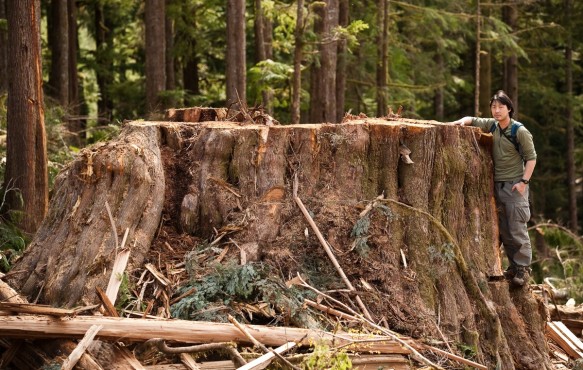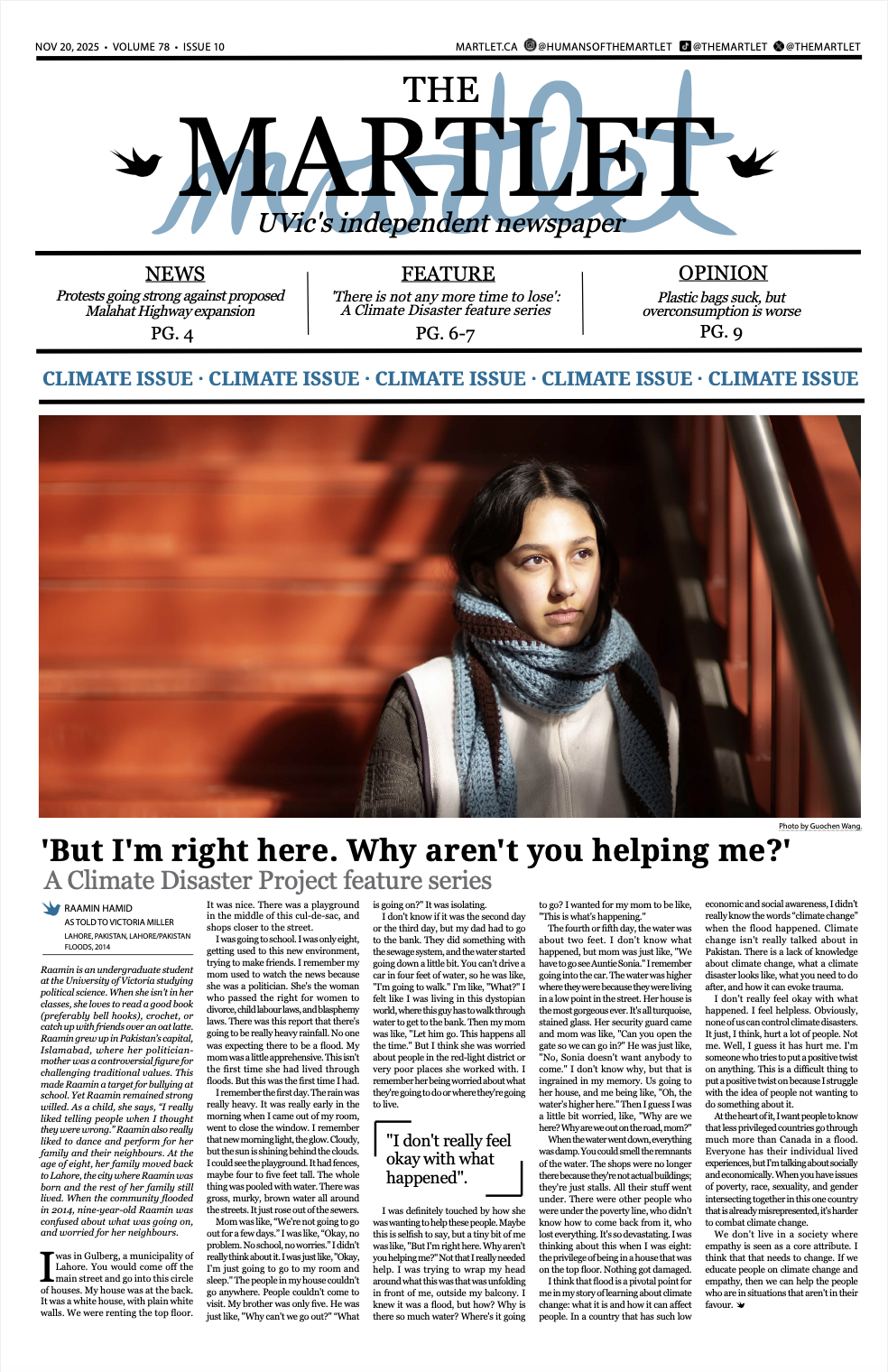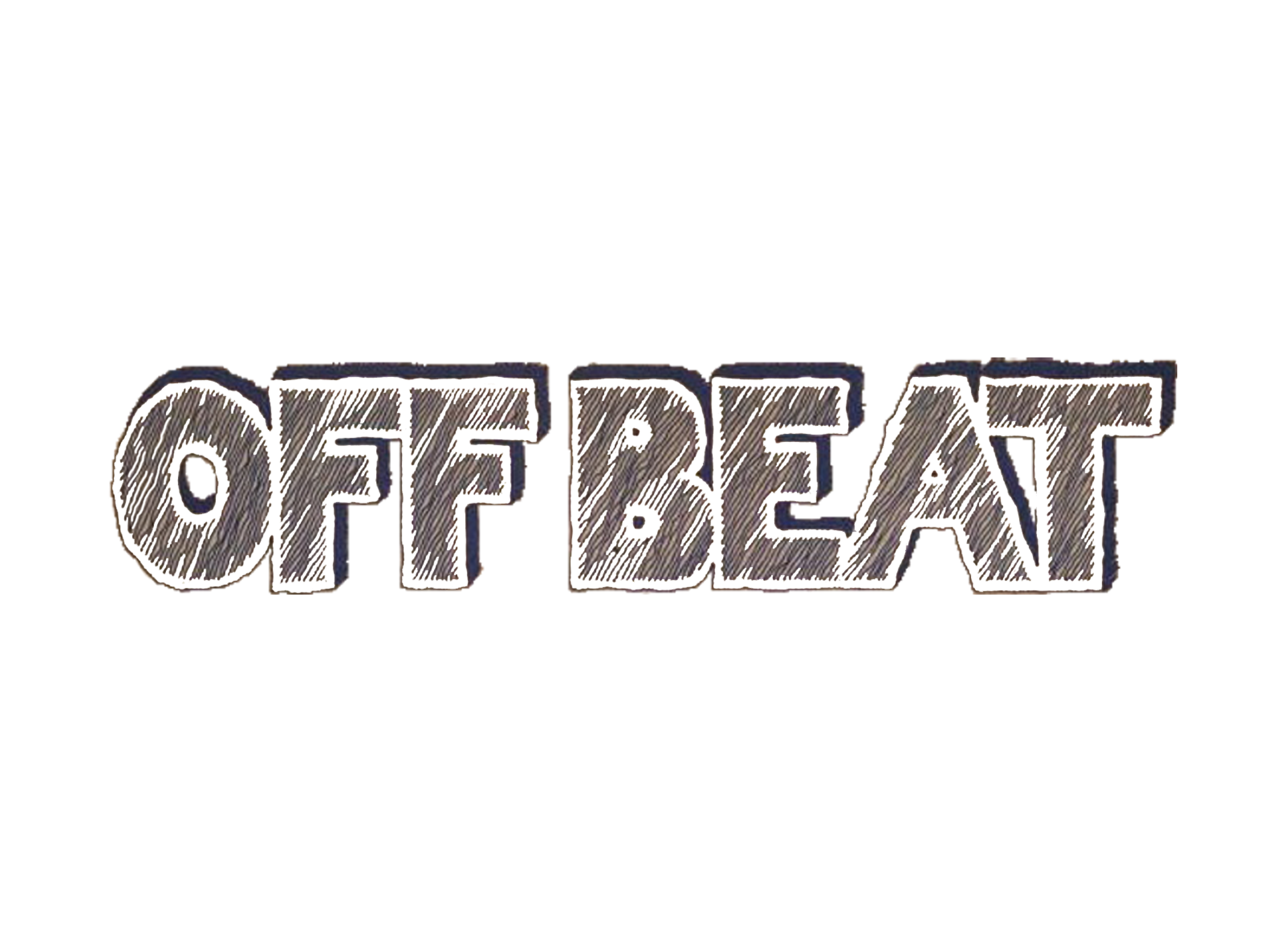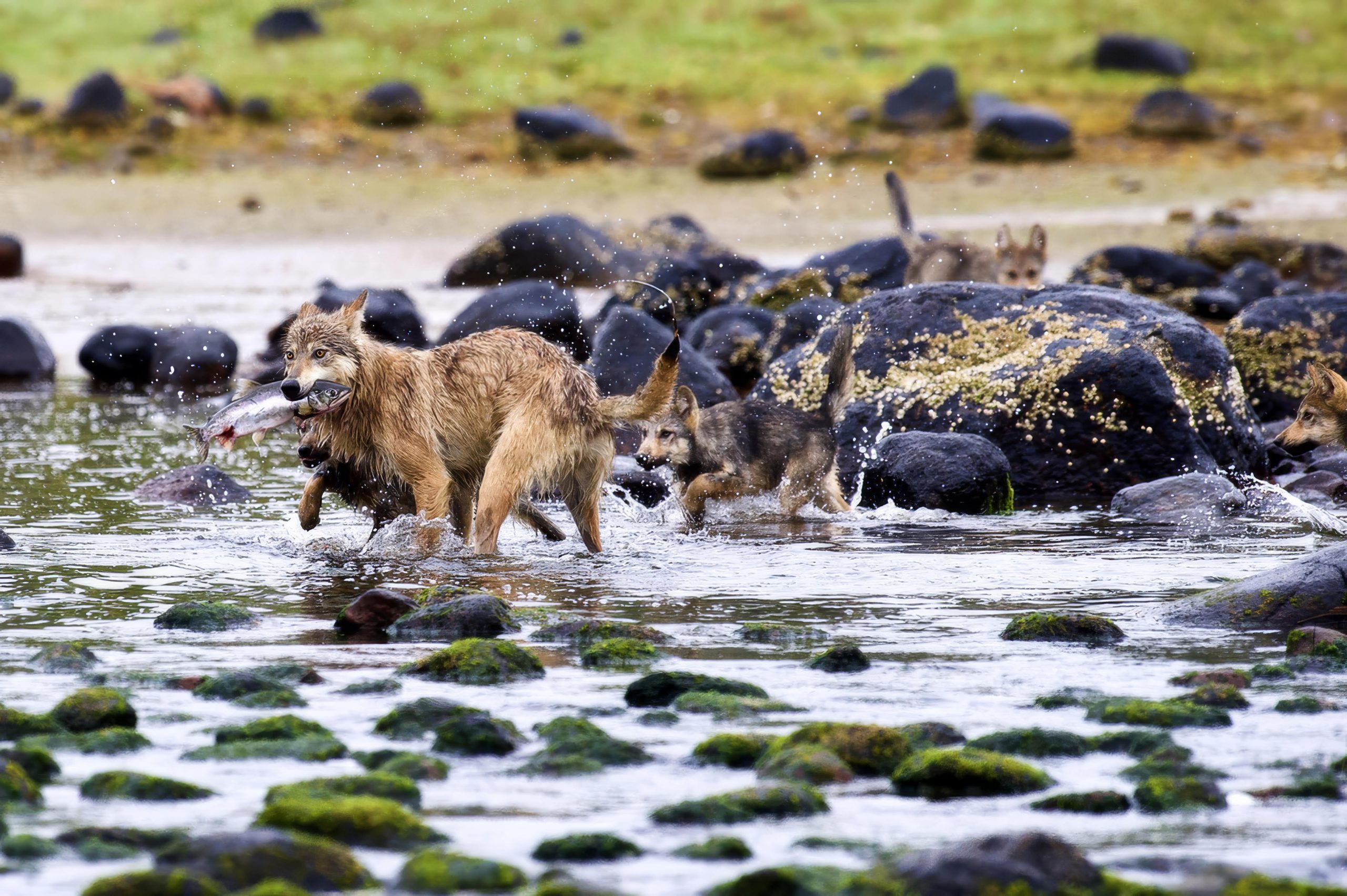Ken Wu and the fight for old-growth
Saskatoon, Saskatchewan, circa 1983. A 10-year old Ken Wu thumbs through a copy of The Pacific Coast, from the Illustrated Natural History of Canada series. Inside is an image that will ignite a passion and start a journey to British Columbia. It’s of a tree stump so huge it creates a dance floor, and couples from an earlier era celebrate the promise of the logging industry with a waltz. This image left Wu in awe that trees so colossal could exist and has been etched on his mind ever since.
Today, Wu is the man behind the Ancient Forest Alliance (AFA), a non-profit organization with a mission to protect British Columbia’s remaining old-growth forests. Based in Victoria, B.C., the AFA’s successes range from bringing the world’s attention to Avatar Grove to their part in convincing the province to halt expansion of tree-farm licences. After 20 years of activism, Wu says that the secret to success is reaching out to people from all walks of life, from First Nations to forestry workers, businesses to grandmothers, hippies to politicians.
As an Ecological Science student at UBC, Wu joined the Student Environment Centre (SEC) environmental club. This was a way to learn about—and practice—organizing fundraisers and rallies. Wu organized protests to protect the Walbran Valley on Vancouver Island, the Capilano Watershed in North Vancouver, and what is now Tatshenshini Provincial Park in the northwestern corner of B.C.
The Environment Centre was productive, but mostly limited to on-campus forums and rallies. Like so many young people, Wu had a direct action approach in mind, so he started the UBC chapter of Earth First!—an organization well known at the time for its aggressive activism tactics. This allowed him to bridge the gap between student activists and “Commercial Drive” activists in Vancouver. Wu’s chapter, Greenfire, enabled him to organize blockades instead of just rallies.

Ken Wu, founder of the Ancient Forest Alliance, stands at a giant red cedar stump near Port Renfrew.
Photo provided by TJ Watt
In 1993, as part of a summer and fall of action that constituted the largest blockade in Canada’s history, Wu organized students of UBC to attend the blockade in Tofino. There, Wu got to know organizer Valerie Langer, a co-founder of the Friends of Clayoquot Sound.
What Wu found in Langer was a pioneer of environmental activism. She crafted the first “markets campaigns” in B.C., including the boycott of B.C. old-growth wood products sold in the U.S. and Europe. She was also one of the first to negotiate with logging companies and First Nations for protection of key areas. She provided Wu with insight on how to build modern campaigns and the importance of using a variety of strategies—and more importantly, to reach outside the comfortable circles of similar-minded activists and see things through various perspectives. As Wu puts it, “to move beyond the type of activism that causes the public to think movements consist mainly of young, angry activists and narrow-minded individuals.”
Wu has a name for this: burnout activism. These are movements without major solutions. They ignore the economy and keep their circles small among like-minded people. Wu says the burnout happens when people don’t see things changing in their direction. They become more “strident,” detached from more diverse audiences, and frustrated with the general public. “Once the public is your enemy, then you’ve already lost the issue,” he says. He observed this among different activist groups after university.
“What I started to realize is that we need to focus more on solutions than on what we’re against. It doesn’t mean you don’t talk about what you’re against, but you have to emphasize more what you’re in favour of. Do both, but one’s a little bit stronger than the other.”
Campaigns have to acknowledge the economy and jobs, Wu explains: “If you don’t change the economy, the forces that cause the problem to begin with are going to persist.” But it can also be as simple as figuring out what people care about.
“My sister, for example, thinks trees are just food for animals, but she loves animals,” Wu says, pointing to the AFA’s calendar of photography. “So if she sees a bear, she’ll care about [the habitat].”
Focusing the public’s attention on what they care about encourages them to draw the political connections for themselves, and that helps put pressure on governments. Nonetheless, Wu still believes that direct-action roadblocks and rallies may still be needed at times.
“There’s still a place for it if it’s done smartly,” he says, “but it never supplants the broader large-scale movements that harness the average Canadian.”
For upcoming information on news, rallies, events, and any further inquiries please visit ancientforestalliance.org








